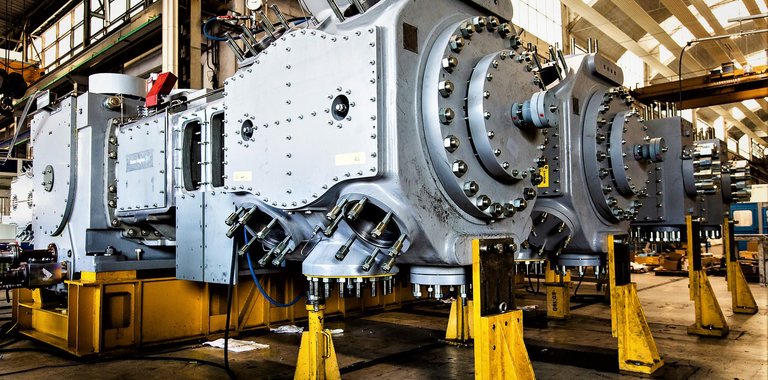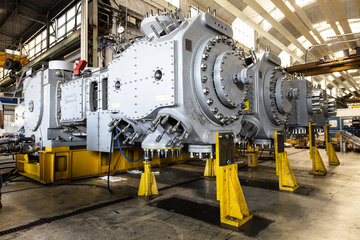Case Study
Overview
Challenges
- Large compressors needed to manage high hydrogen flowrates
- To reduce footprint, use same compressors to handle both make-up and recycle process
- Tight delivery schedule of 64 weeks for such large units
Results
- Supplied four of the largest reciprocating compressors ever used for refinery processes
- Strict COVID-19 safety protocols enabled customer to attend the first test on September 15, 2020
- All four machines were successfully tested and prepared for delivery before end of 2020, within the tight timeline
Case study details
The Sriracha oil refinery, which began operating in 1964, has a current capacity before CFP startup of 275,000 barrels per day. In 2018, as part of Thai Oil's Clean Fuel Project, the decision was made to expand to 400,000 barrels per day and transform the refinery into an environmentally friendly facility for of higher-quality transportation fuel.
The new processing facilities include:
- Crude distillation unit
- High vacuum distillation unit
- Hydrocracking unit
- Residue hydrocracking unit
- Hydrogen manufacturing unit
- Hydrotreating unit
- Hydrodesulphurization unit
- Sulphur recovery unit
- Energy recovery unit
Leveraging our extensive experience in the design and manufacture of reciprocating compressors, especially for hydrogen compression applications, Baker Hughes met the needs of this ambitious project.
Get the full story in PDF
/sites/bakerhughes/files/2021-04/BakerHughes_Case_8HGThaiOil_A4-042821.pdf



